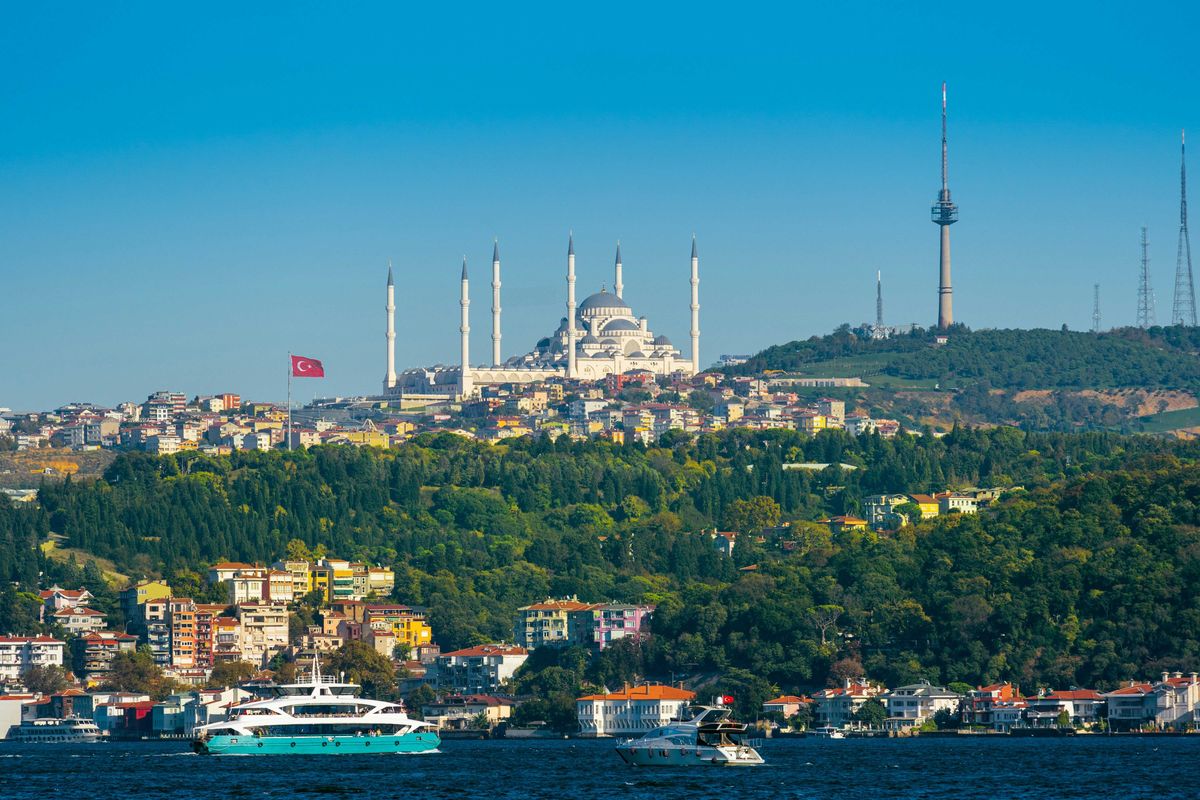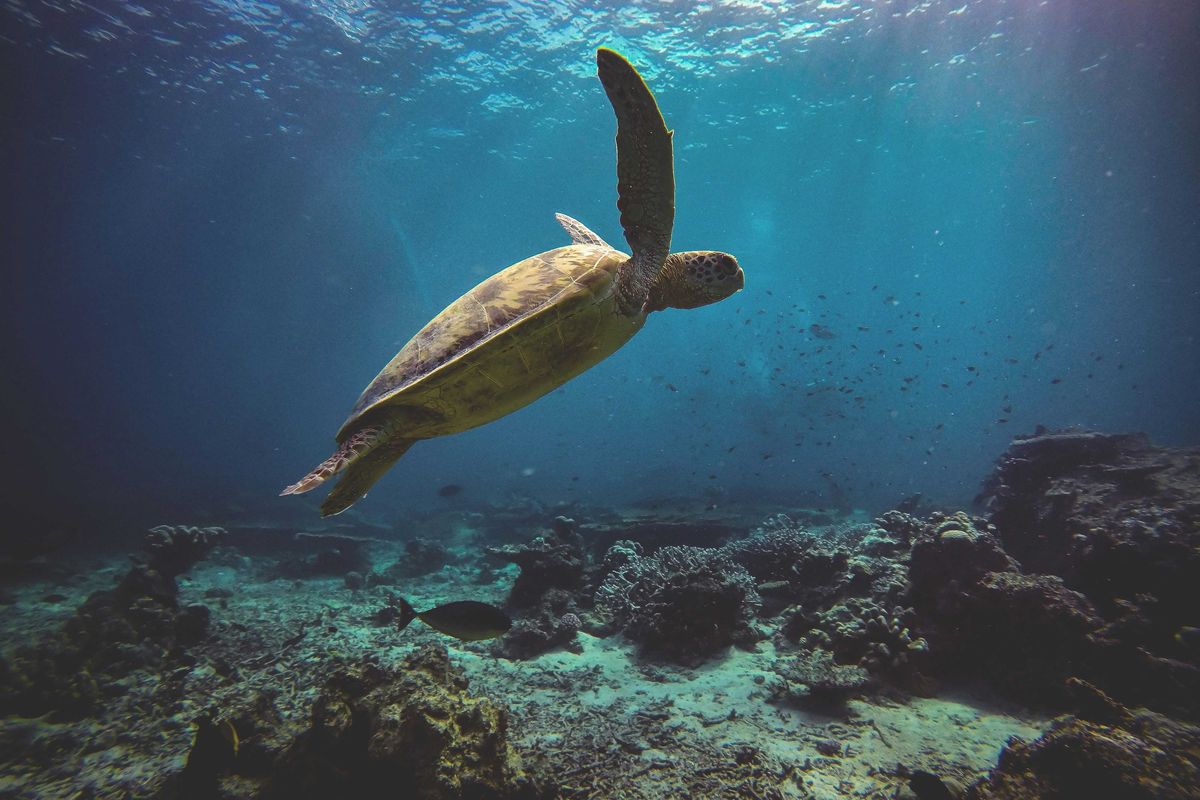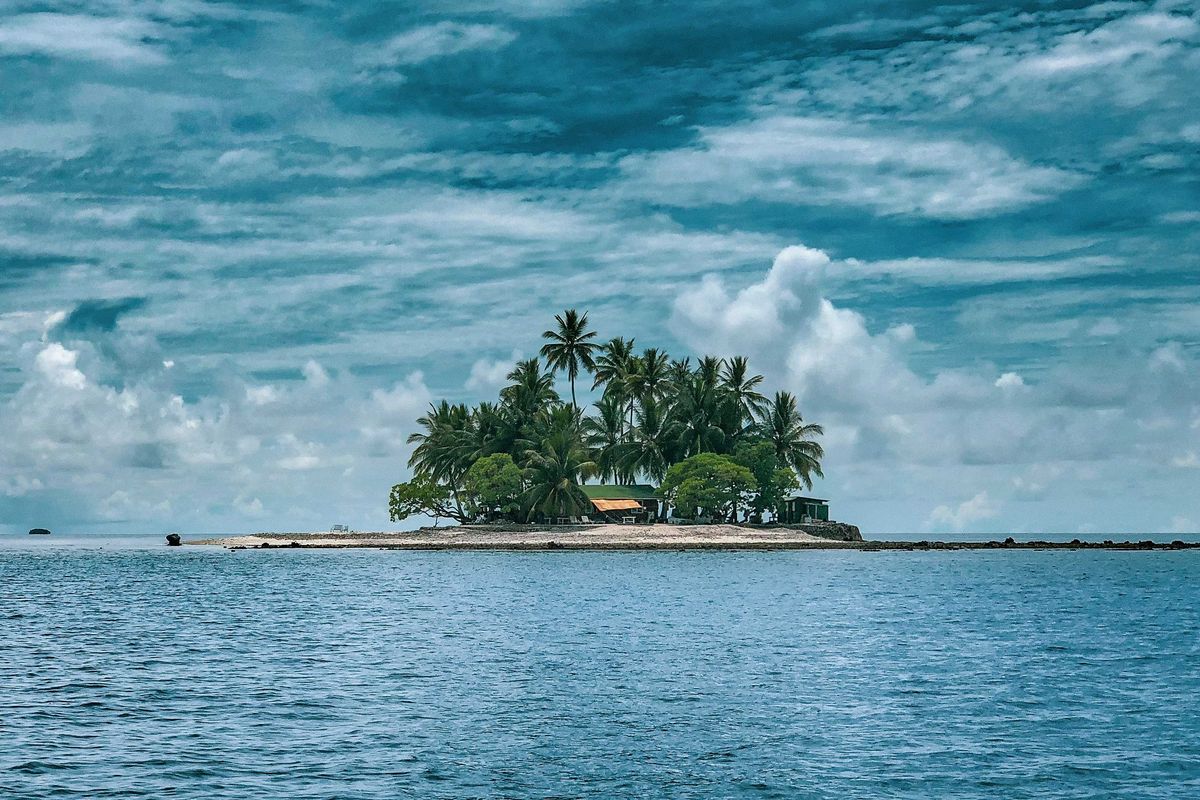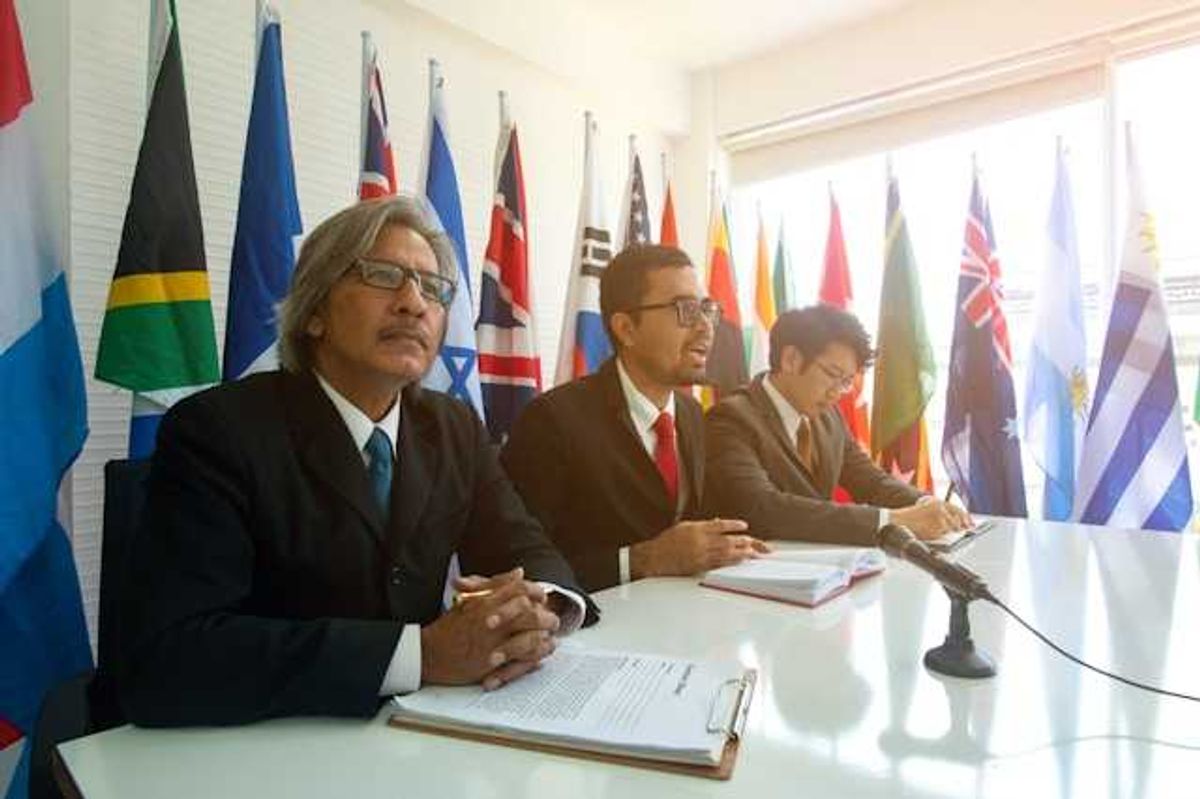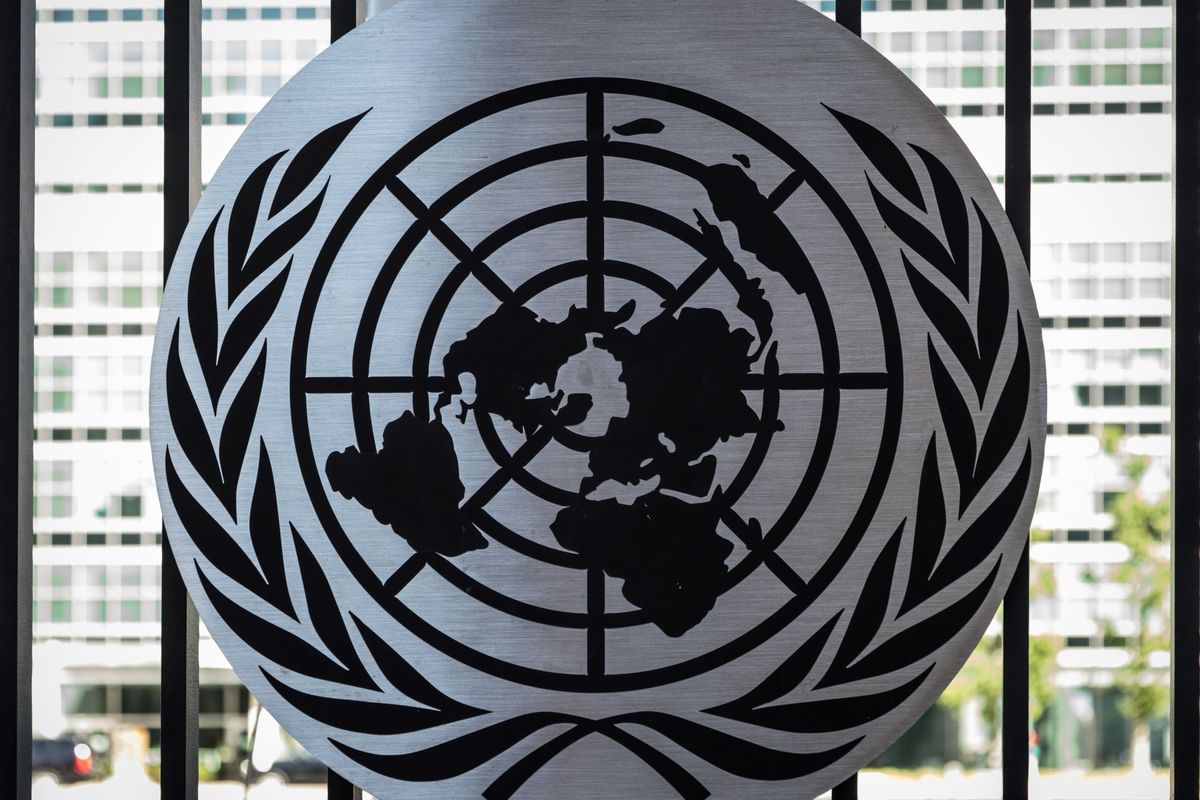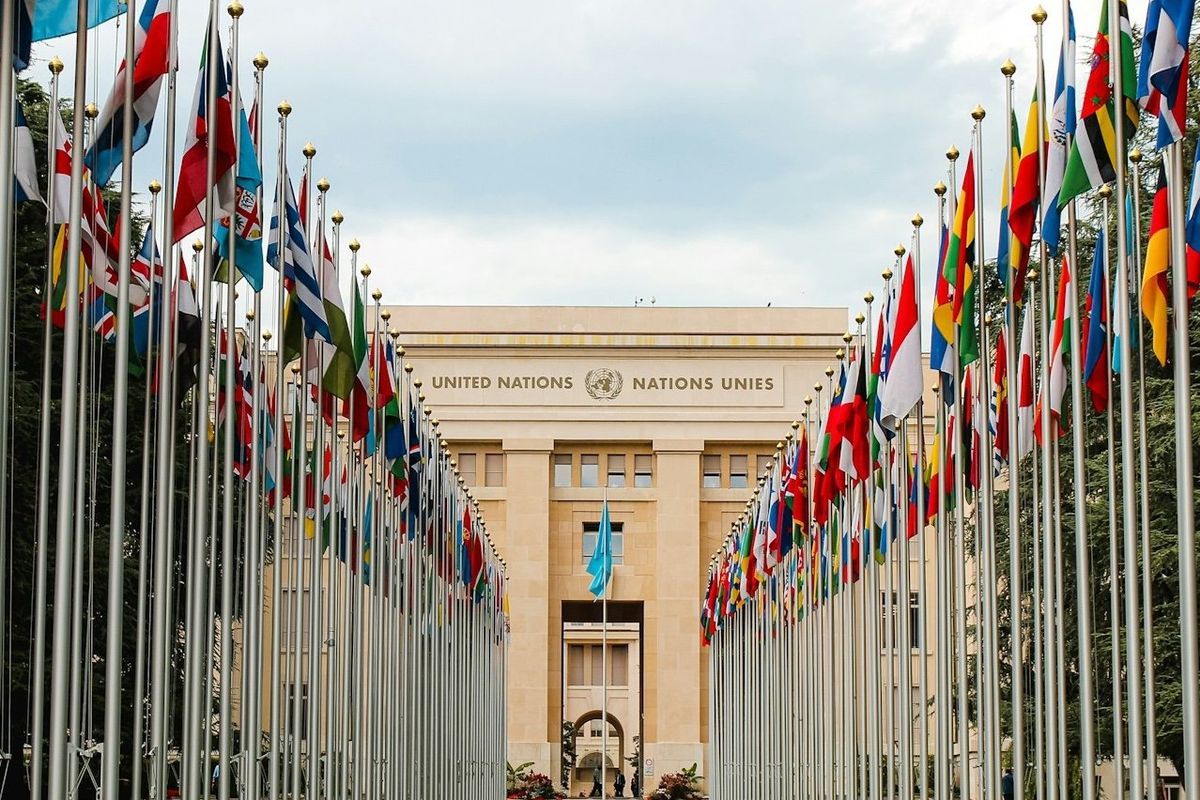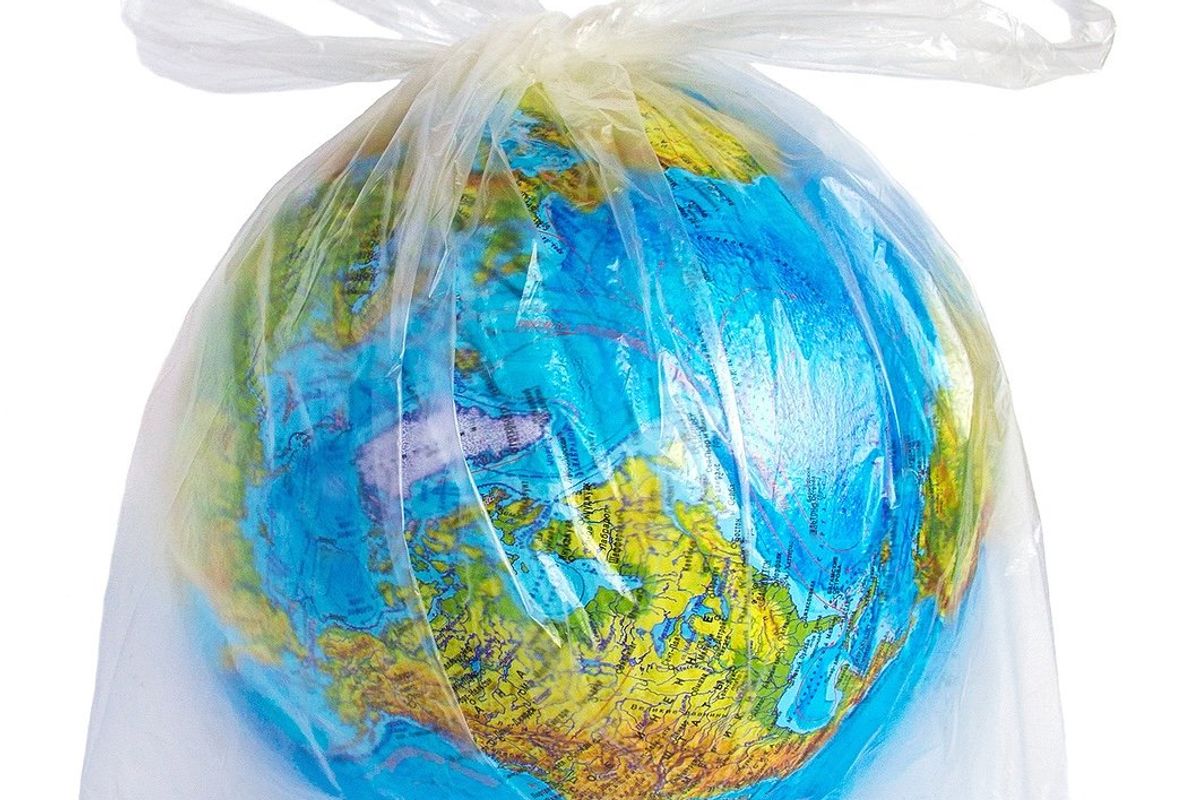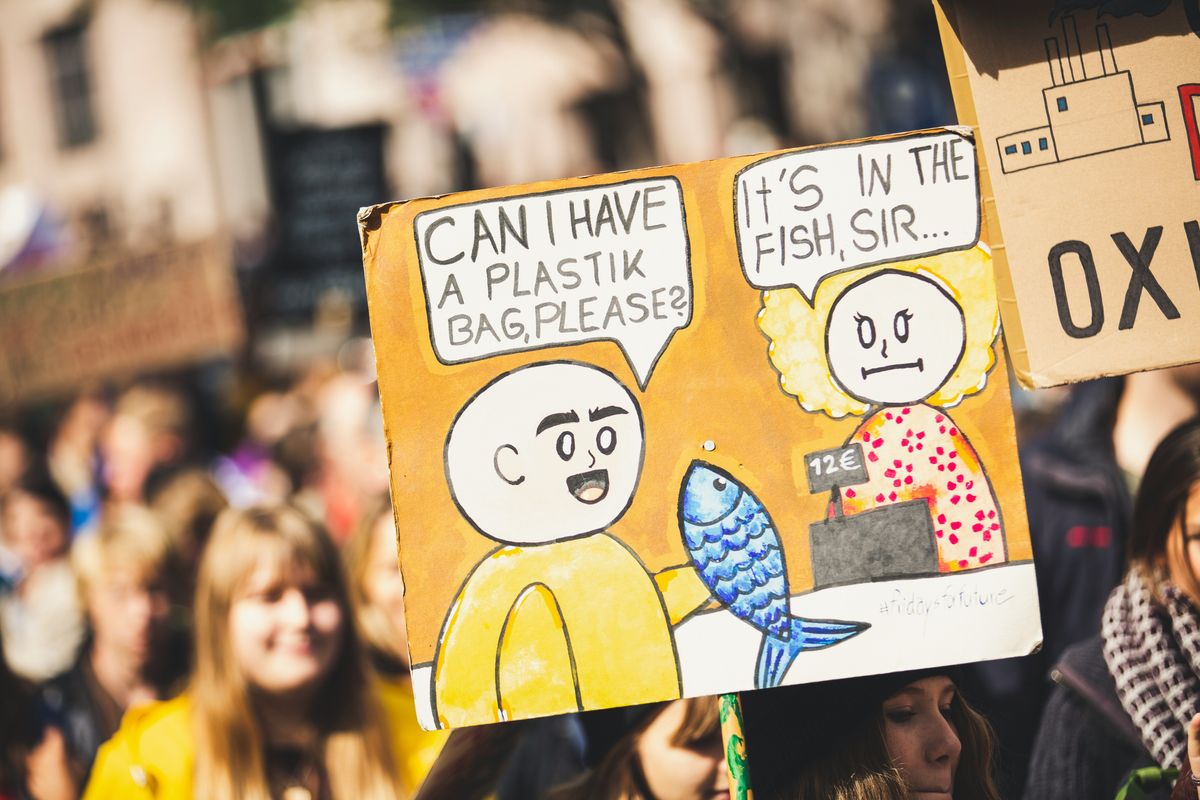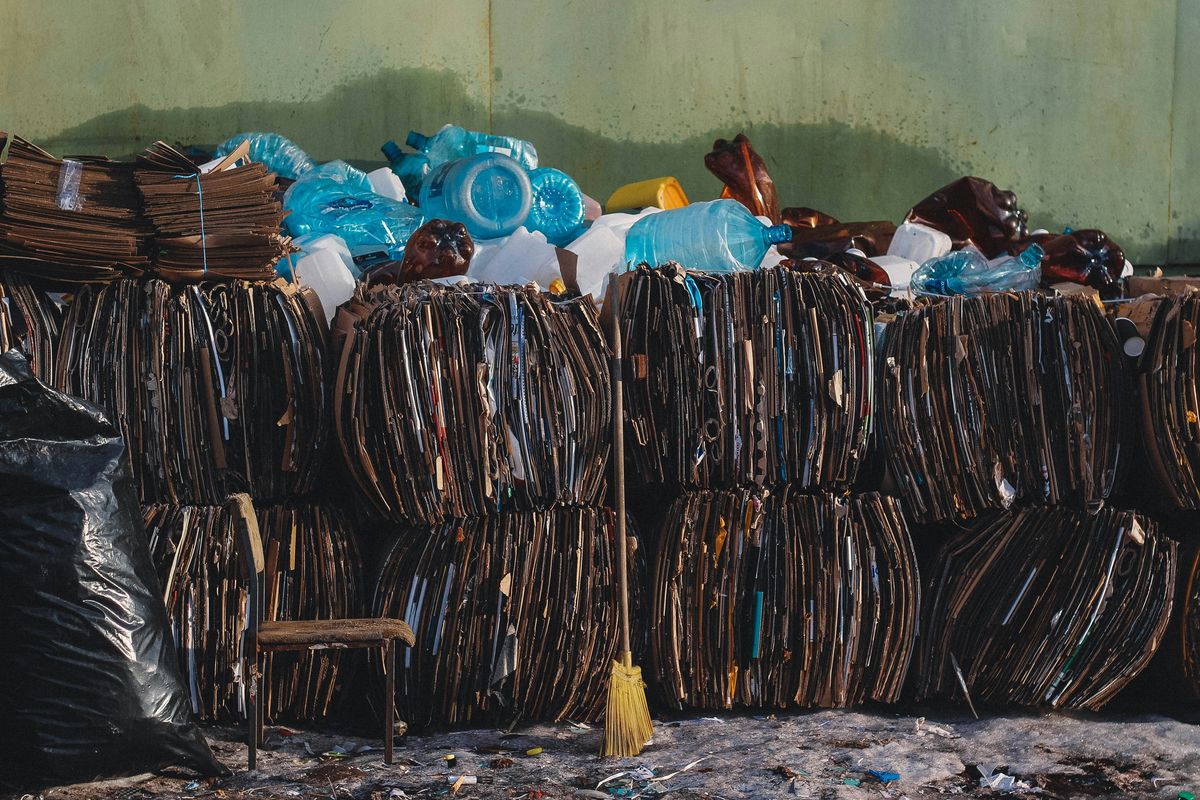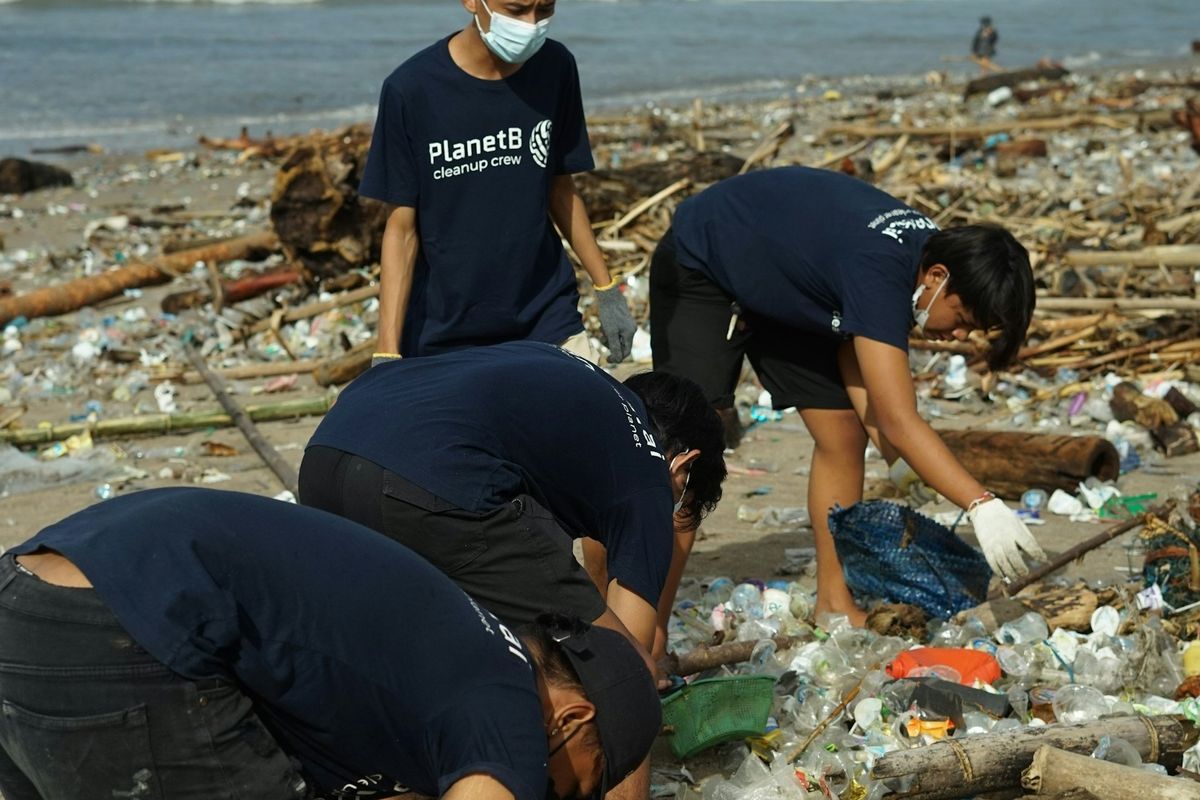Phaseout plan gained unexpected momentum at the summit, only to vanish from the final deal and unlock a new stage.
UN
Despite the U.S. government souring on the global climate agenda ahead of the COP30 summit, American companies did not shy away.
But Australia will hold the summit's presidency — and therefore control the diplomacy, Climate Minister Chris Bowen told reporters.
The California governor has made great environmental strides in his state. But he’s also cosigned on some major setbacks.
An update to the International Union for Conservation of Nature Red List, the global scientific authority on the status of species, underscores the immense challenges facing species in a world transformed by humans but also offer exciting new evidence of how the right interventions can help them survive.
Calls for reform to allow people across the Pacific threatened by climate crisis to more easily migrate, particularly to New Zealand.
As nearly 200 nations prepare to meet in the Amazon for the COP30 summit, negotiators face a pivotal moment for global climate diplomacy — with no headline deal on the table, a U.S. retreat from the Paris Agreement, and mounting pressure to turn promises into implementation.
The crises of climate change, pollution, and biodiversity loss stem from humanity’s severed relationship with nature, argues former United Nations official Tim Christophersen, who calls for treating ecosystems as vital infrastructure.
In short:
- Christophersen, now working in the private sector after years at the UN Environment Programme, believes restoration efforts must be central to environmental policy and investment.
- His book Generation Restoration argues nature can recover quickly if given diversity and space, and that imagination is needed to counter generational amnesia about nature’s former abundance.
- He promotes ecosystem restoration as essential infrastructure — on par with roads and energy systems — and sees collaboration between public and private sectors as key to long-term climate resilience.
Key quote:
“... unlike in a human relationship, we cannot divorce from nature, because we cannot live without nature.”
— Tim Christophersen, former UN Environment Programme official
Why this matters:
Seeing ecosystems as infrastructure marks a profound shift in how societies might tackle climate change and public health threats. The degradation of forests, wetlands, and oceans accelerates disasters like floods, heatwaves, food shortages, and disease outbreaks. Yet science shows ecosystems can rebound if given room and resources. Restoring mangroves, for example, buffers coastlines and stores carbon. Rebuilding soil health on farms improves water retention and reduces pesticide use. These systems support not just wild species, but human well-being and economies.
Related: Restoring Ecuador’s páramos brings water and wildlife back to life
Keep reading...Show less
Brazil is pressuring governments to submit updated climate targets ahead of a key UN meeting, as most countries — including top polluters — have yet to deliver their pledges.
In short:
- Only 28 countries have submitted their updated climate plans, or NDCs, ahead of the September 25 deadline, with key emitters like China and the Euoprean Union still missing.
- Brazil, hosting Cop30 in Belém this November, is stepping up diplomatic efforts to prevent a repeat of past UN climate gridlock and has called a rare pre-summit meeting in New York.
- Concerns over logistics and equity have emerged around the summit’s remote Amazonian location, where limited lodging and sky-high prices threaten to sideline smaller nations and civil society groups.
Why this matters:
Nationally determined contributions, or NDCs, are at the heart of the Paris Agreement’s strategy to curb global warming. But if major polluters don’t set strong targets or fail to act on them, the 1.5°C goal slips further out of reach, a threshold scientists say could trigger irreversible climate damage. The lack of submissions, and a fraught political backdrop with the U.S. now out of the Paris Agreement, adds urgency. On top of that, Brazil’s choice to host the summit in Belém — deep in the Amazon and with limited infrastructure — raises questions about global access to climate diplomacy. If small nations and civil society voices can’t afford to attend, the legitimacy and fairness of the entire negotiation process are at risk.
Learn more: The International Court of Justice just made it harder for countries to ignore the climate crisis
Keep reading...Show less
A sixth round of United Nations negotiations to curb plastic pollution collapsed in Geneva last week, with diplomats citing the United States’ hardening stance under the Trump administration as a key obstacle to progress.
In short:
- Talks aimed at creating a legally binding global treaty on plastic pollution ended without agreement after 11 days, as negotiators failed to find consensus on capping plastic production.
- The U.S. delegation rejected proposals to limit new plastic output, arguing such measures would hurt domestic industries and raise consumer costs, while advocates accused the U.S. of blocking key provisions.
- Some delegates now doubt that a global deal can be reached under the Trump administration, with some calling for alternatives like voting mechanisms or separate agreements among willing nations.
Key quote:
“Consensus is dead. You cannot agree a deal where all the countries who produce and export plastics and oil can decide the terms of what the deal is going to be.”
— Bjorn Beeler, International Pollutants Elimination Network (IPEN)
Why this matters:
Plastic pollution has surged in recent decades, clogging oceans, poisoning wildlife, and seeping into the human body via food and water. The vast majority of plastics are made from fossil fuels, and without limits on production, cleanup efforts can’t keep pace with rising waste. Scientists have linked plastic exposure to hormone disruption, cancer risks, and other health threats. At the same time, plastic waste poses serious environmental justice concerns, disproportionately affecting low-income communities and island nations. Delayed or weakened international action could lock in decades of pollution, especially as the petrochemical industry expands production in response to dwindling oil demand from transportation. Time is running out for concerted global action on both health and climate fronts.
Related: Plastic pollution treaty talks end with no agreement
Keep reading...Show less
Negotiators failed to reach a deal on a global treaty aimed at curbing plastic pollution and plan to resume talks at a later date as disputes over production limits and toxic chemicals persist.
In short:
- Delegates from 184 countries clashed over whether the treaty should cap plastic production or focus on recycling, reuse, and safer chemical use.
- Powerful fossil fuel-producing nations and the plastics industry resisted production limits, arguing the treaty should prioritize waste management.
- Negotiators released a revised draft recognizing the unsustainable growth of plastics and the need for a coordinated global response, but no consensus was reached.
Key quote:
“We are going in circles. We cannot continue to do the same thing and expect a different result.”
— Graham Forbes, head of Greenpeace delegation in Geneva
Why this matters:
Negotiations produced a draft that acknowledges the runaway growth of plastics and the global health and environmental risks — microplastics in oceans, toxic chemicals leaching into food and water, and communities burdened by mountains of waste — but it’s still just words on paper. The world is still waiting for leadership to turn concern into concrete action.
Read more: Read more:
- U.S. pressures countries to drop global plastics cap at treaty talks
- A stalled global plastic treaty threatens our future fertility
- Environmental justice advocates criticize lack of inclusion in plastic treaty negotiations
- Petrochemical plants send millions of pounds of pollutants into waterways each year: Report
Keep reading...Show less
Negotiations on the world’s first global treaty to curb plastic pollution have hit a dead end, with nearly 100 countries rejecting a draft they say fails to tackle production or toxic chemicals.
In short:
- Countries pushing for strong action, including the European Union, UK, and Colombia, say the draft treaty ignores plastic production caps and the risks of harmful chemicals.
- Oil- and plastic-producing nations, backed by industry interests, want the treaty to focus only on recycling and waste management, avoiding limits on production.
- Delegates warn that without binding measures on production, chemicals, and financing, the treaty risks being a “step backward” in global efforts to reduce plastic pollution.
Key quote:
“It certainly seems like it was very biased toward the like-minded countries [Saudi, Russia, Iran etc]. There’s problems across the board. There’s no binding measures on anything. There’s no obligation to contribute resources to the financial mechanism. There’s no measures on production or chemicals. This text is just inadequate.”
— Dennis Clare, negotiator for Micronesia
Why this matters:
The world’s first attempt at a global plastic pact has hit the skids, and it’s exposing just how deep industry influence runs. Without binding measures, experts warn, this treaty could be less a breakthrough and more a global shrug, leaving ecosystems and public health to bear the cost.
Read more:
- U.S. pressures countries to drop global plastics cap at treaty talks
- A stalled global plastic treaty threatens our future fertility
- Environmental justice advocates criticize lack of inclusion in plastic treaty negotiations
- Petrochemical plants send millions of pounds of pollutants into waterways each year: Report
Keep reading...Show less
Environmental and Indigenous leaders are pushing for a strong, legally binding treaty to curb plastic pollution, as United Nations negotiations in Geneva near their conclusion.
In short:
- Environmental and Indigenous groups rally outside the UN in Geneva, calling for a robust treaty to tackle plastic pollution.
- The key issue centers on whether to limit plastic production or focus on recycling and reuse.
- Some nations, like Panama, are pushing for caps on plastic production, while oil-producing countries resist such measures.
Key quote:
“We need people outside of here to tell their countries to speak up for what it is that they’re standing for. Are they standing for them, their citizens, or big oil?””
— Juan Carlos Monterrey Gomez, head of Panama’s delegation
Why this matters:
The outcome of these talks will determine how much progress the world can make in curbing plastic production and its harmful effects on ecosystems and human health. Should the focus be on reducing plastic production, or will the world double down on recycling and reuse? This treaty is critical for public health — the chemicals used in plastic production and plastic recycling have been linked to a slew of health problems, from hormonal disruption to cancer. The final push is now, and the world is waiting for a resolution that doesn’t just clean up the current mess but slows its growth.
Read more:
- A stalled global plastic treaty threatens our future fertility
- A plastic recipe for societal suicide
- Environmental justice advocates criticize lack of inclusion in plastic treaty negotiations
- DuPont letter shows plastics industry dismissed recycling as viable solution in 1974
- What is chemical recycling?
Keep reading...Show less
More than 200 lobbyists from the oil, petrochemical, and plastics industries are attending UN negotiations in Geneva, raising fears they could weaken efforts to curb global plastic production.
In short:
- Lobbyists from fossil fuel–linked industries now outnumber the combined delegations of all 27 EU member states, with some embedded in national negotiating teams.
- A coalition of over 100 countries backs binding limits on plastic production, while a smaller bloc led by major oil producers opposes caps, pushing for waste-focused measures instead.
- The U.S., the world’s second-largest plastic producer, has aligned with industry-friendly nations and reportedly stopped meeting with environmental groups before the talks.
Key quote:
“Fossil fuel companies are central to plastic production, as over 99% of plastics are derived from chemicals sourced from fossil fuels.”
— Ximena Banegas, global plastics and petrochemicals campaigner, Centre for International Environmental Law
Why this matters:
Plastic production is growing at a pace that threatens ecosystems, public health, and climate stability. Almost all plastics come from fossil fuels, meaning higher output locks in more carbon emissions alongside toxic pollution. Microplastics have been detected in human blood, placentas, and organs, and communities near production hubs often face elevated cancer risks and respiratory illness. The treaty under negotiation could shape how the world addresses this problem for decades, deciding whether the focus stays on cleaning up waste after the fact or tackles production at its source.
Learn more: U.S. pressures countries to drop global plastics cap at treaty talks
Keep reading...Show less
The U.S. quietly lobbied nations to reject plastic production limits in a global treaty, aligning itself with petrochemical interests and putting it at odds with much of the world.
Olivia Le Poidevin and Valerie Volcovici report for Reuters.
In short:
- The U.S. sent memos urging countries to oppose key elements of a United Nations plastics treaty, including caps on plastic production and bans on toxic additives.
- Over 100 countries support a treaty that addresses the full life cycle of plastics, but the U.S. stands with oil-producing nations seeking to avoid upstream regulation.
- Observers say the American position mirrors industry demands and undermines global cooperation on an issue tied to ocean pollution, human health, and climate change.
Key quote:
"Refusing to include plastic production in this treaty is not a negotiation stance. It is economic self-sabotage."
— Juan Carlos Monterrey-Gomez, head of delegation for Panama
Why this matters:
The U.S. push to block upstream limits weakens a global effort to safeguard both the planet and public health.The research is clear: Plastic isn’t just a waste problem — it’s a fossil fuel problem, a chemical exposure problem, and most certainly a human health problem. From endocrine disruptors in baby bottles to microplastics in placentas, we now know plastic is in our blood and in our air, soil, and water. Yet the U.S., while publicly touting its commitment to environmental leadership, is doing industry’s bidding behind the scenes, watering down treaty language that could actually protect people and the planet.
Read more: “Plastic will overwhelm us:” Scientists say health should be the core of global plastic treaty
Keep reading...Show less
As United Nations negotiators debate a plastics treaty in Geneva, Nairobi’s landfill pickers say corporate “plastic credits” are stripping away the bottles they depend on for income.
Benard Ogembo, James Wakibia and Conor McGlone report for DeSmog.
In short:
- Verra, the dominant carbon-credit verifier, is lobbying to embed plastic credits in the global plastics treaty while partnering with firms such as Dow and ExxonMobil.
- Kenya’s TakaTaka Solutions sells credits to Bentley Motors, claiming “net-zero plastic,” yet waste pickers say the company intercepts high-value plastics upstream and leaves them with worthless trash.
- Analysts warn the scheme mirrors flaws in carbon offsets, delivering little new cleanup and letting petrochemical producers avoid cuts to virgin plastic output.
Key quote:
“We used to pick. Now we’re just searching. Many women here scavenge with their children. They have no choice. They can’t afford school fees.”
— Solomon Njoroge, chair of the Nairobi Recyclable Waste Association
Why this matters:
Plastic production already outpaces the planet’s ability to absorb its waste. Credits that let corporations claim “net-zero plastic” without cutting output could accelerate that imbalance. When high-value bottles are siphoned off before they reach dumps, informal collectors lose one of the few reliable incomes in sprawling cities like Nairobi. The job loss also weakens the back-stop that keeps some trash out of rivers and oceans, shifting clean-up costs onto public health systems that must contend with contaminated water, toxic burn-offs and the microplastics now found in human blood. If credit markets proliferate, governments may feel less urgency to restrict virgin plastic, locking in decades of fossil fuel demand and pollution globally.
Learn more: The invisible workforce at the frontlines of plastic waste management
Keep reading...Show less
A new round of global talks in Geneva may be the world’s last chance to seal a strong treaty to end plastic pollution, but deep divides remain.
In short:
- Delegates from nearly every nation are negotiating a legally binding treaty to tackle plastic pollution, with sharp disagreements over whether to cap production or just improve recycling and waste management.
- Powerful oil and plastics-producing nations, including the U.S. and Saudi Arabia, oppose production limits, while 100+ countries, along with major companies like Walmart and Coca-Cola, support cuts alongside recycling mandates.
- Indigenous leaders and small island nations say plastic pollution is threatening their food, health, and economies, and stress that the talks must not end in weak compromises.
Key quote:
“We will never recycle our way out of this problem.”
— Graham Forbes, Greenpeace plastics campaign lead
Why this matters:
Plastic is leaching into our food, our water, even our bodies. It's been linked to serious health issues, from endocrine disruption to cancer. This might be the world's last real shot at a global treaty that doesn’t just sweep the mess around. The question is whether political will can overpower petrochemical lobbying, and whether the world is ready to stop treating plastic like it’s disposable when it’s anything but.
Read more:
Keep reading...Show less
Only 22 nations have upgraded their clean-power plans since Cop28, leaving the United Nations target to triple renewables by 2030 far out of reach, a new Ember analysis shows.
In short:
- The combined national targets are just 2% higher than they were at Cop28, putting the world on track for about 7.4 terawatts (TW) of renewables by 2030 — well shy of the 11 TW needed.
- The United States, China and Russia have not revised their goals; Mexico and Indonesia weakened theirs, while Vietnam, Australia, and Brazil offered only modest increases.
- China’s forthcoming five-year energy plan could prove decisive, but Washington and Moscow still have no 2030 renewable targets.
Key quote:
“Tripling global renewables capacity by 2030 is the single biggest action this decade to stay on track for the 1.5C climate pathway. Yet, despite the landmark Cop28 agreement to reach 11,000GW of renewables by 2030, national targets remain largely unchanged and fall short of what is needed.”
— Ember analysts, in a report
Why this matters:
Wind and solar must soar for the world to quit coal, oil, and gas, yet planning timetables and subsidy fights keep choking the build-out. Every gigawatt delayed locks in years of carbon pollution and the smog, heat waves, and crop losses that follow. Because power plants run for decades, today’s inaction determines whether children now in kindergarten will grow up in a stable climate or face compound crises of food insecurity, migration, and escalating health threats ranging from heat stroke to mosquito-borne disease. The Ember findings show how quickly political momentum can evaporate after a summit handshake, undercutting investor confidence and raising the odds of costlier, more disruptive emergency measures later.
Related: New Zealand greenlights new offshore oil and gas search despite climate pledges
Keep reading...Show less
Journalism that drives the discussion
Copyright © 2017 Environmental Health Sciences. All rights reserved.
Copyright © 2017 Environmental Health Sciences. All rights reserved.



